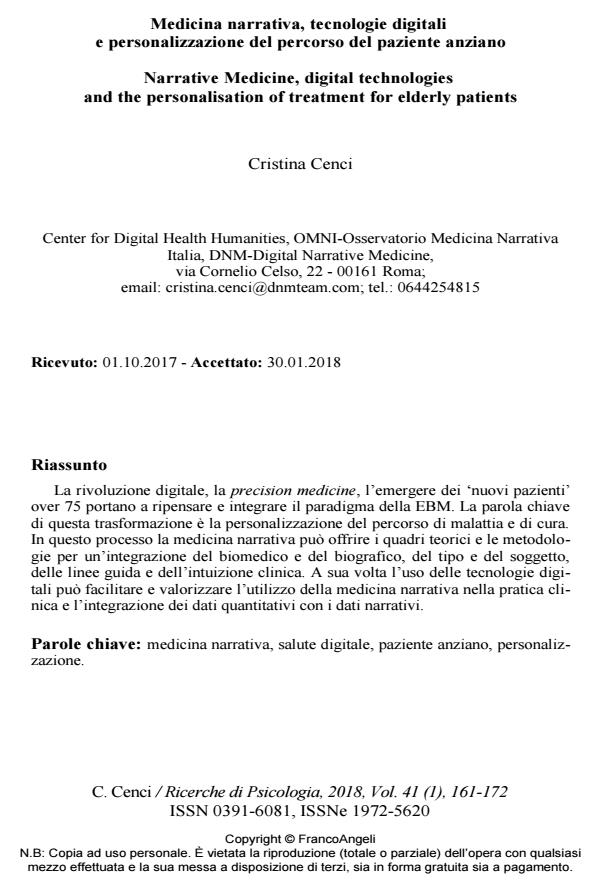Narrative Medicine, digital technologies and the personalisation of treatment for elderly patients
Journal title RICERCHE DI PSICOLOGIA
Author/s Cristina Cenci
Publishing Year 2018 Issue 2018/1
Language Italian Pages 12 P. 161-172 File size 184 KB
DOI 10.3280/RIP2018-001012
DOI is like a bar code for intellectual property: to have more infomation
click here
Below, you can see the article first page
If you want to buy this article in PDF format, you can do it, following the instructions to buy download credits

FrancoAngeli is member of Publishers International Linking Association, Inc (PILA), a not-for-profit association which run the CrossRef service enabling links to and from online scholarly content.
The digital revolution, the precision medicine and the rise of the so-called "new over 75 patients" require us to reconsider and integrate the EBM paradigm. The key word of this transformation is the personalization of the illness and cure path. Narrative medicine can speed this process by providing both the theory frameworks and the methodologies for an integration of biomedical and biographical aspects, of typologies and individuals, of guidelines and clinical intuition. The digital technologies can facilitate and leverage the use of narrative medicine in clinical practice and the integration of quantitative and narrative data.
Keywords: Narrative medicine, digital health, elderly patient, personalisation.
Cristina Cenci, Medicina narrativa, tecnologie digitali e personalizzazione del percorso del paziente anziano in "RICERCHE DI PSICOLOGIA " 1/2018, pp 161-172, DOI: 10.3280/RIP2018-001012